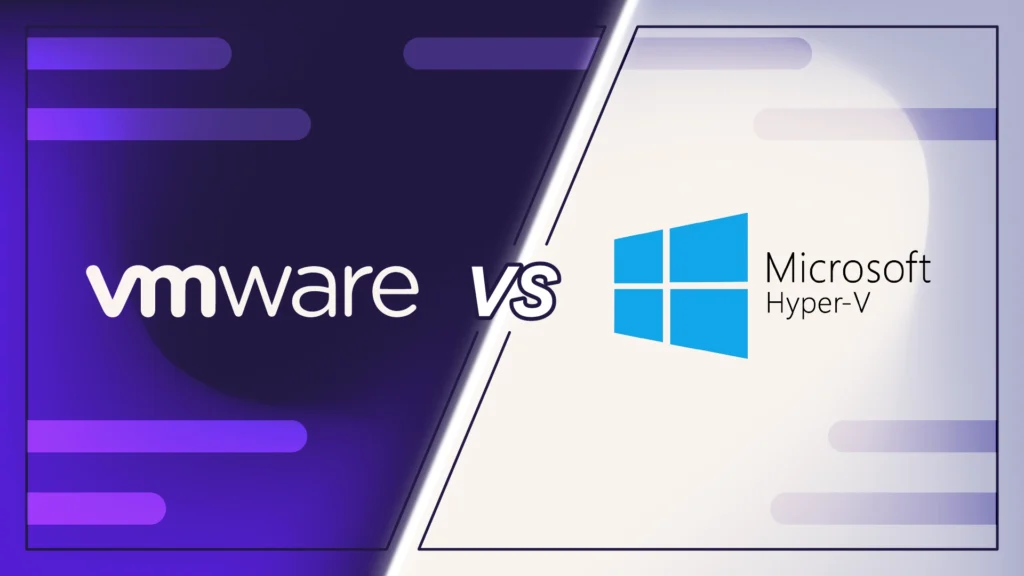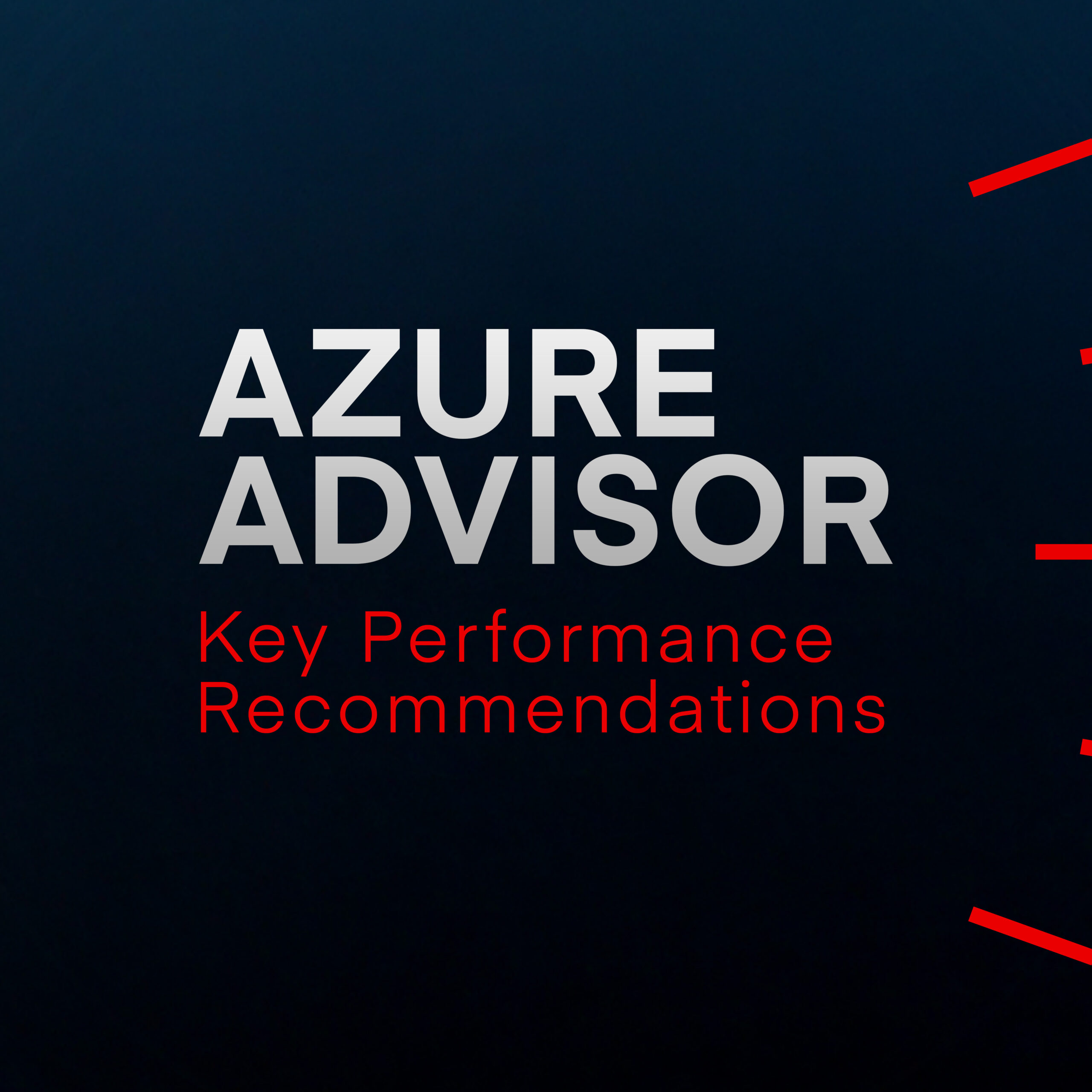Virtualisation is now a huge part of businesses with some of the benefits including flexibility, reliability, scalability, and cost reductions. The two top virtualisation platforms currently in the market are VMware and Hyper-V, but which is the right one for you? Taking a deeper look into both, we see how they compare and ultimately, help you decide which one is best for your business.
What is VMware (vSphere)?
A server virtualisation platform created by VMware and is the current market leader. The platform contains centralised management of the virtual environment is made up of the ESXi hypervisor, vSphere Client, vCenter and more. Each VM within the platform’s infrastructure can run its own OS and application.
What is Hyper-V?
Hyper-V is Microsoft’s hardware virtualisation hardware and is a type-1 hypervisor, with a parent partition and multiple child partitions. With a guest OS that has programs running on it each of these child partitions which acts as complete virtual computers. IT infrastructure of varying complexities can be built on Hyper-V, creating an isolated space for each VM.
VMware vs Hyper-V Comparison:
VMware vs Hyper-V: Scalability
When it comes to scalability there is not much between Hyper-V and VMware. The scalability capabilities of Hyper-V are slightly higher than that of VMware however, they both offer other features that give one the advantage over the other which is turn creates more of a level playing field. An example of this can be seen through the CPU configuration, where Hyper-V offers more physical RAM space than VMware, VMware offers more virtual CPUs per host.
As the information from Nakivo shows, there isn’t much between the two platforms when it comes to the scalability features.
VMware vs Hyper-V: Design
Both Hyper-V and VMware have many advantages with some of Hyper-V’s including that the VMM Kernel does not need a device driver for each device, the hypervisor layer also has a lack of APIs creating a reduced attack surface.
This Hypervisor layer also reduces costs due to there being less of a need to maintain the device drivers and the software as it does not need as much initialisation time as VMware. Now switching over and looking at the advantages of VMware which include a reduced need for security patches and when controlling all the components of virtualisation no OS is required.
While both seem to have a sturdy design with great advantages, where we see the differentiating factors, and VMware becoming slightly ahead, is in the disadvantages of each design. Where of course VMware only has its flaws, Hyper-V has a few more in comparison.
Issues such as all VMs crashing if the controlling layer OS was to crash on Hyper-V is a standout problem as it isn’t the level of efficiency, we expect to see on platforms such as this. Also, where security patches are needed not for VMware, Hyper-V is reliant on the application of Microsoft security updates which creates and increase in downtime as all VMs have to be taken offline or moved.
VMware vs Hyper-V: Storage
Let’s now look into how the storage is set up on both platforms, then we can go into which operates a better setup. First up, Hyper-V. Storing the VM data in a virtual disk file the virtual disk file serves as the hard and is separate from the hardware and software.
Utilising the Virtual Hard Disk (VHD) format, this hard drive is seen as a fully functioning machine. Hyper-V also has ReFS (Resilient File System) as a built-in feature that allows a connection between host servers and virtual machine files directly whilst also being able to fix data corruptions quickly. Some of the advantages of the storage set up within Hyper-V include the ability to have several devices working together, a quick set up time and speedy updates and maintenance.
On the other hand, Hyper-V includes Cluster Shared Volume (CSV) when this is compared to VMware as it is a lot more complex where VMFS (Virtual Machine File System) is used. VMFS is an intelligent interface that has many benefits including the ability to facilitate growth, optimising storage utilisation, simplifies provisioning and admin of VMs and makes disaster recovery more straightforward.
VMware vs Hyper-V: Security
Security is a huge factor for businesses, and this is especially paramount when choosing the right virtual environment. Getting it right is your business making the right steps towards enhancing your cyber security stance and protecting what’s important to you from malware and viruses.
Whilst both Hyper-V and VMware both offer effective security processes, we want to drill down to what both platforms exactly offer. Staring off with Hyper-V, which supports these the latest innovations with such things as secure boot, vTPM (Virtual Trusted Platform Module), encrypted networks and shielded VMs.
So, what does this mean? With such things as secure boot in place this show that Hyper-V is set up to help resist malware attacks where vTPM is there to safely store items such as passwords, certificates, and encryption keys. This then combined with protecting digital data confidentiality and enabling hardened security controls with shielded VMs indicates a strong security stance.
Looking at how VMware differs, or goes beyond this, the platform offers all that Hyper-V does as well as virtualisation-based security (VBS). With VBS, VMware uses hardware virtualisation features to create and isolate a secure region of memory from the normal operating system. Adding to this, VMware NSX is a particularly effective security platform that adopts the zero- trust security model, something there is no equivalent for on Hyper-V.
VMware vs Hyper-V: Cost
Of course, cost is a big factor when deciding which virtualisation platform to go for, especially since the Broadcom VMware acquisition which has seen steep price increases and a shift towards bundled products. However, it may not seem as much as a deal breaker when you consider what we have discussed above. There is another factor here though that needs to be considered and that is how each of the platforms devise their pricing structures.
Pricing in VMware is per processor whereas Hyper-V looks at it from a host point of view and how many cores there are. This then concludes that the pricing structure of each suits a business based on its size. For smaller businesses Hyper-V may be better suited and then for larger businesses VMware may then be the right choice.
VMware vs Hyper-V: Conclusion:
For us, VMware still takes the top spot. The efficiency and productivity of the platform is ahead that of Hyper-V and all whilst giving peace of mind that of the you do not have to worry about the security of your environment.




